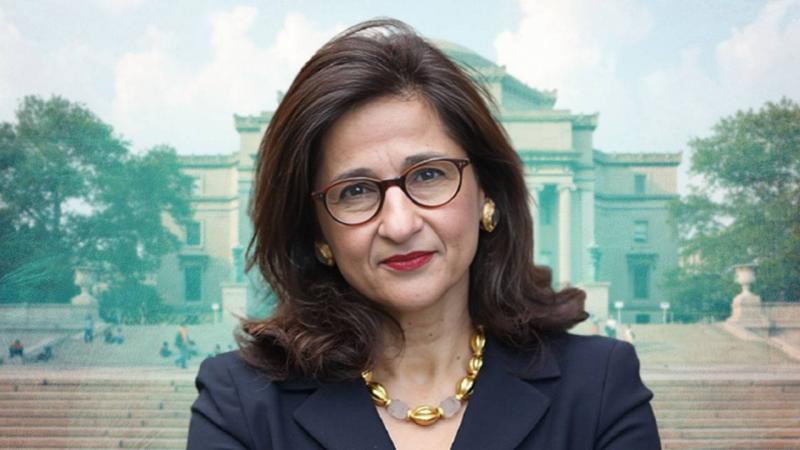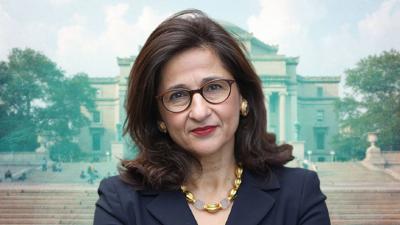Nimrat Shafiq, known as "Minouche," has gained attention in recent days due to pro-Palestinian protests at Columbia University. The Egyptian-born economist, who became the first woman to lead Columbia University in New York, has faced criticism over her handling of demonstrations related to the war in Gaza. Less than a year into her role at Columbia, Shafiq has been under pressure from both supporters and opponents of these protests regarding her response. Some faculty members criticized her decision to call the New York Police last week to disperse the protests, while others called for police assistance to clear a demonstrators' camp. Nevertheless, she continues to retain the support of the university's Board of Trustees.
A report issued by the university's Senate executive committee, representing faculty members, revealed that Shafiq and her administration made "many actions and decisions that harmed Columbia University," including calling the police and allowing the arrest of students without consulting faculty members, censoring and suspending student protest groups, and hiring private investigators. The university board, mostly comprised of faculty and staff along with a few students, did not mention Shafiq by name in its decision and avoided stronger language such as assigning blame. The resolution called for forming a task force that would monitor "corrective actions" requested by the board to handle the protests.
Regarding Jewish students' rights, Shafiq stated during a congressional hearing on antisemitism on campus last week that "more work needs to be done to combat antisemitism and support academic freedom." She added that "the challenge has been to reconcile the rights of free expression for those who want to protest with the rights of Jewish students to be in an environment free from harassment or discrimination, which has been the case on our campus and many others in recent months." Shafiq expressed confidence that the university could "confront antisemitism and provide a safe campus environment for our community while simultaneously supporting religious academic exploration and freedom."
### Who is Nimrat Shafiq?
Shafiq was born in Alexandria and her family left Egypt during the presidency of the late Gamal Abdel Nasser. She grew up in the Southern United States, living in Georgia, Florida, and North Carolina, and holds both British and American citizenship. An academic expert in political economy, Shafiq became the president of Columbia University in July 2023, succeeding Lee Bollinger, who held the position for an extended term, according to a report by CNN.
Shafiq graduated from the University of Massachusetts in Amherst with a bachelor's degree in economics and politics, earned a master's in economics from the London School of Economics, and obtained a Ph.D. in economics from Oxford University. She was the youngest vice president of the World Bank ever, at age 36, and held prominent positions at the UK Department for International Development, the International Monetary Fund, and the Bank of England before returning to academia as the head of the London School of Economics in 2017. Dr. Nimrat Shafiq was awarded permanent membership in the House of Lords by the late Queen Elizabeth II, thereby earning the title "Baroness." In the UK, she is known as "Minouche Shafiq."




